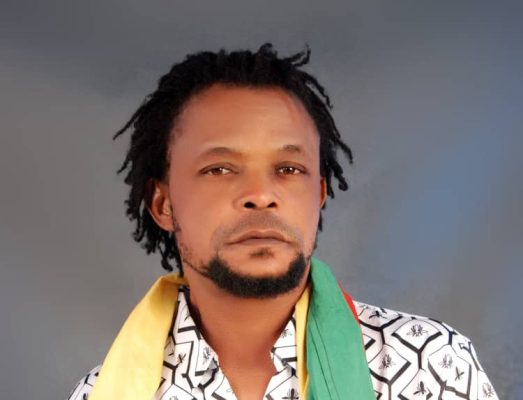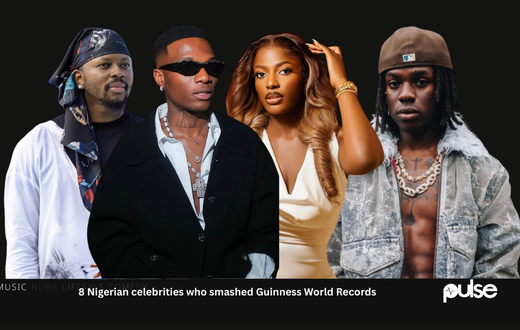In the thriving landscape of Nigerian music, artists who blend unique sounds with powerful messages continue to attract the attention of both local and international audiences. One artist steadily making his mark is Big Magana, the Abia State-born musician known for his distinct voice and energetic performances. According to industry observers and fans, Big Magana’s evolving influence in the reggae and ragga scene demonstrates the ongoing innovation within Nigeria’s broad musical community.
Big Magana hails from Bende Local Government Area in Abia State, a region renowned for its cultural richness and musical heritage. According to sources close to the artist, his early years were filled with exposure to different musical styles that inspired his lifelong passion. Reportedly, this enthusiasm for music didn’t remain hidden for long. Community members who recall Magana’s childhood allege that he would often participate in local events, where his natural talent as a performer began to emerge—experiences that would later inform his diverse career as a DJ, reggae/ragga artist, and music marketer.
Seeking greater opportunities to showcase his abilities, Big Magana made the significant move to Lagos, considered by many as the heartbeat of the Nigerian entertainment industry. According to interviews with industry insiders, Lagos offered Magana access to a broader audience and facilitated key collaborations. His musical journey in the city is said to have included work with notable names such as US-based artist Coleman, Ruffman, Scucha, and the late DaGrin—a celebrated figure still revered in Nigerian hip-hop circles. These collaborations reportedly allowed Magana to further hone his distinct fusion of reggae sensibilities with contemporary beats.
As described by event organizers and reported by various local entertainment blogs, Big Magana’s stage performances are recognised for their energy and creativity. He has shared stages with Nigerian superstars like Wizkid, Dbanj, and Flavour, most notably at celebrated cultural festivals such as Felabration. One highlight in his performance career, according to sources who attended the event, was his role hosting the ‘Glo Bounce’ tour—a major entertainment tour that featured top acts including Flavour, Korede Bello, Ego, and DJ Spinall at Lagos’ popular Santos Hotel in Egbeda. Industry analysts claim that occasions like these have bolstered Magana’s appeal among music fans seeking both entertainment and authenticity in performance.
Reggae music in Nigeria is frequently associated with themes of unity, spirituality, and social consciousness, reflecting global reggae traditions while also drawing on West African heritage. Big Magana’s fanbase and critics suggest that his music is deeply embedded within these classic reggae themes. Many of his tracks reportedly explore Rastafarian philosophies and reflect his devotion to Jah—a spiritual force central to reggae culture. According to music reviewers, his lyrics resonate with audiences searching for uplifting messages and a sense of belonging, aspects that resonate widely in both Nigeria and the broader African diaspora.
Recently, Big Magana released the single ‘Promise,’ featuring the collaborative efforts of US-based Coleman, highlighting the cross-border nature of modern African music. Industry sources confirm that the song is available on major streaming platforms including Spotify, Boomplay, and iTunes. According to airplay reports provided by local radio stations, ‘Promise’ has received substantial rotation on Ray Power FM, Jordan FM, and Star FM—outlets that reportedly attract millions of listeners in Nigeria and the West African sub-region. Observers say that this increasing exposure could pave the way for even greater international reach for Magana’s work, provided he continues to leverage digital platforms effectively.
Beyond his musical output, Big Magana is also said to have developed a robust track record in music marketing. According to colleagues and media commentators, he has worked behind the scenes with high-profile acts such as the late DaGrin, the respected music label Question Mark Entertainment, Ruffman, Modenine, and the critically acclaimed Asa. Music industry analysts suggest that Magana’s experience as a marketer not only enhances his own career prospects but also contributes to the broader ecosystem supporting up-and-coming Nigerian artists, many of whom face challenges with visibility in a crowded music market.
As Big Magana’s journey continues, music enthusiasts and commentators remain attentive to his impact on Nigerian and African music. While some industry stakeholders argue that his blend of reggae, ragga, and pop elements demonstrates the adaptive creativity of Nigerian artists, others urge caution, noting that sustaining relevance in a rapidly changing industry requires continuous innovation and strong audience engagement. Meanwhile, artists and cultural leaders from Ghana and other parts of West Africa also watch closely, as the cross-pollination of musical styles in the region is said to be reshaping contemporary African music for global audiences.
What’s your take on the growing influence of reggae and ragga in Nigeria and West Africa? Do you think artists like Big Magana can help drive these genres to even more international recognition? Share your opinions and let us know which artists you believe are redefining African music on the world stage.
Food inquiries: food@nowahalazone.com
General support: support@nowahalazone.com
Story sales/submissions: story@nowahalazone.com
Follow us on Facebook
Follow us on X (Twitter)
Follow us on Instagram










